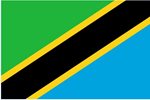Amaya Wittmaack
 Amaya is a fourth-year medical student at the University of Virginia School of Medicine. Prior to attending medical school, Amaya earned her BA from Stanford University in California, with coursework in tropical medicine and an MS in Epidemiology from the London School of Hygiene & Tropical Medicine. As an undergrad at Stanford, she was afforded the opportunity to conduct research and volunteer in the global health field in India and Guatemala. Later, she spent time in Spain through a summer research fellowship with the Ichann School of Medicine at Mount Sinai in New York. Her passion for global health drove her to work for a USAID-funded global health nonprofit organization in Washington, DC and to pursue her MS in the UK to expand her statistical analysis and research skills. She spent two years working as a clinical researcher, when her student-initiated work lead to several publications within the infectious disease field. As a first-year medical student, she conducted pediatric TB research in Tanzania. She is thrilled to be returning to Tanzania as a fourth-year medical student to continue her research with the support of Haydom Lutheran Hospital and Dr. Tania Thomas with UVA. In her free time, Amaya enjoys riding bikes with her husband and freelance consulting.
Amaya is a fourth-year medical student at the University of Virginia School of Medicine. Prior to attending medical school, Amaya earned her BA from Stanford University in California, with coursework in tropical medicine and an MS in Epidemiology from the London School of Hygiene & Tropical Medicine. As an undergrad at Stanford, she was afforded the opportunity to conduct research and volunteer in the global health field in India and Guatemala. Later, she spent time in Spain through a summer research fellowship with the Ichann School of Medicine at Mount Sinai in New York. Her passion for global health drove her to work for a USAID-funded global health nonprofit organization in Washington, DC and to pursue her MS in the UK to expand her statistical analysis and research skills. She spent two years working as a clinical researcher, when her student-initiated work lead to several publications within the infectious disease field. As a first-year medical student, she conducted pediatric TB research in Tanzania. She is thrilled to be returning to Tanzania as a fourth-year medical student to continue her research with the support of Haydom Lutheran Hospital and Dr. Tania Thomas with UVA. In her free time, Amaya enjoys riding bikes with her husband and freelance consulting.

Medication Management of Anti-Tubercular Medications Among Pediatric Patients with Tuberculosis
1/19/2020 - 02/23/2020
Tanzania
What does the Kean Fellowship mean to you?
I am honored to be included among this year’s group of recipients of the Kean Fellowship. For me, the Kean Fellowship represents an affirmation of my prior professional and academic choices in this field and an opportunity to further pursue my interests. As an avid world traveler and global health worker, the Kean Fellowship offers me support to return to Tanzania for clinical and research rotations. I did a research rotation after my first year of medical school at the same site and I am excited to return now as a fourth-year medical student. It will be interesting to see how my clinical and research skills have developed over the last several years, and I am hopeful to contribute more as a team member with more experience and training. It will be a great opportunity to visit with old friends as well!
What do you anticipate learning?
I anticipate learning a great deal about infectious diseases commonly found in tropical regions. As a first-year medical student, it was eye-opening to see conditions like malaria, TB and even more common gastrointestinal bugs and their impact on nutritional status. I anticipate learning more about how healthcare works in resource-limited settings. How we practice medicine depends largely on the infrastructure and resources we have available. I will be interested in learning new strategies for how to manage patients in such settings. Additionally, I hope to gain more experience functioning as a healthcare worker in a cross-cultural setting as well and learning how to build trust with my patients in such a context.
What interests you about tropical medicine and what problems are you interested in solving?
My clinical and research interests in tropical medicine have developed from my time as an undergraduate at Stanford, through my MS in Epidemiology at the London School, and now as a medical student at the University of Virginia. As an undergraduate, I was particularly interested in how social determinants impacted health in tropical settings by placing certain populations at a higher risk for tropical diseases, impacting access to appropriate care for these diseases, and contributing to differences in long term morbidity and mortality. Through my MPH and research experiences, I became interested in the application of these concepts to developing, implementing and evaluating clinical and public health interventions within tropical settings. As an aspiring healthcare professional, I am interested in learning more about the diseases that uniquely impact tropical settings, particularly infectious diseases. I also want to better understand how to improve the way these conditions are managed in resource-limited settings. I view my long-term career interests as a conglomeration of my experiences.